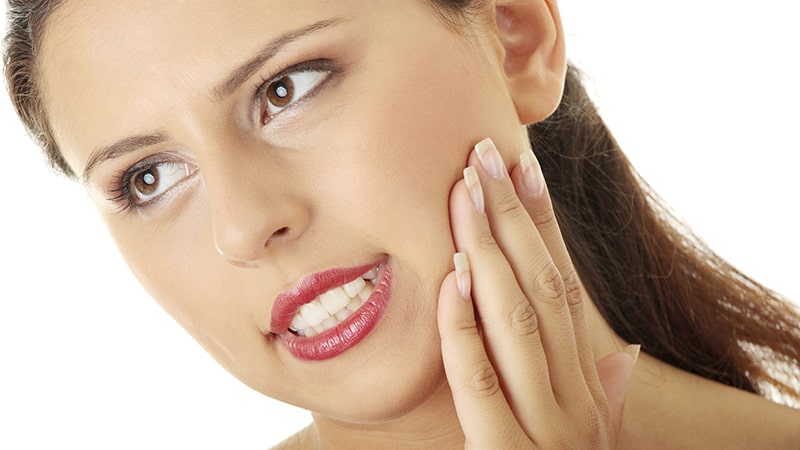
There are many reasons why people grind their teeth. Stress and anxiety can cause teeth grinding, but it is more common to happen during sleep. Grinding your teeth at night can be caused by missing and/or crooked teeth, or any number of sleep disorders such as sleep apnea.
It can be hard to determine if you are a teeth grinder since it most commonly happens during sleep. Some common symptoms that may determine if you grind your teeth are frequent headaches and sore jaw. Many people find out they are teeth grinders because a loved one hears it at night and brings it to their attention. If you are suffering from any of these symptoms and have a hunch you may be grinding your teeth, you should talk to your dentist. We can examine your mouth and jaw to determine whether or not you are suffering from teeth grinding.
Chronic teeth grinding can be harmful to your health. It can cause fracturing, loosening, wear down, and even loss of your teeth. If this happens, you will eventually need bridges, crowns, root canals, implants, partial dentures or eve complete dentures to fix the problem! Your teeth aren’t the only things suffering. Your jaw can also be affected and you can suffer from TMD/TMJ.
You may be wondering what your dentist can do to help. Some dentists can get you fitted for a mouth guard which will help protect your teeth at night. If you realize you are grinding your teeth because of stress and/or anxiety, your doctor can provide options to reduce your stress. Seeing a physical therapist, getting a prescription for muscle relaxants, and beginning an exercise regimen can all help stop teeth grinding. If you are suffering from a sleeping disorder that is causing you to grind your teeth, treating the sleep disorder can eliminate the bad habit.
-
Try to completely stop or at least cut back on foods and drinks that contain caffeine.
-
Avoid alcohol, as teeth grinding is intensified after consumption of alcohol.
-
Cut the habit of chewing on pencils, pens, or other objects that aren’t food, as well as gum. These actions cause your jaw muscles to clench, making teeth grinding more likely to happen.
-
If you grind during the day, try to train yourself to kick the habit by placing the tip of your tongue between your top teeth and bottom teeth. This will keep you from subconsciously grinding and clenching, which will help your jaw relax.
-
Hold a warm washcloth against your cheek and earlobe. This will help your jaw muscles relax.
The first step to kick the habit is to visit your experienced Livermore Hills Dentist. They can determine your damage and help guide you in the right direction.
